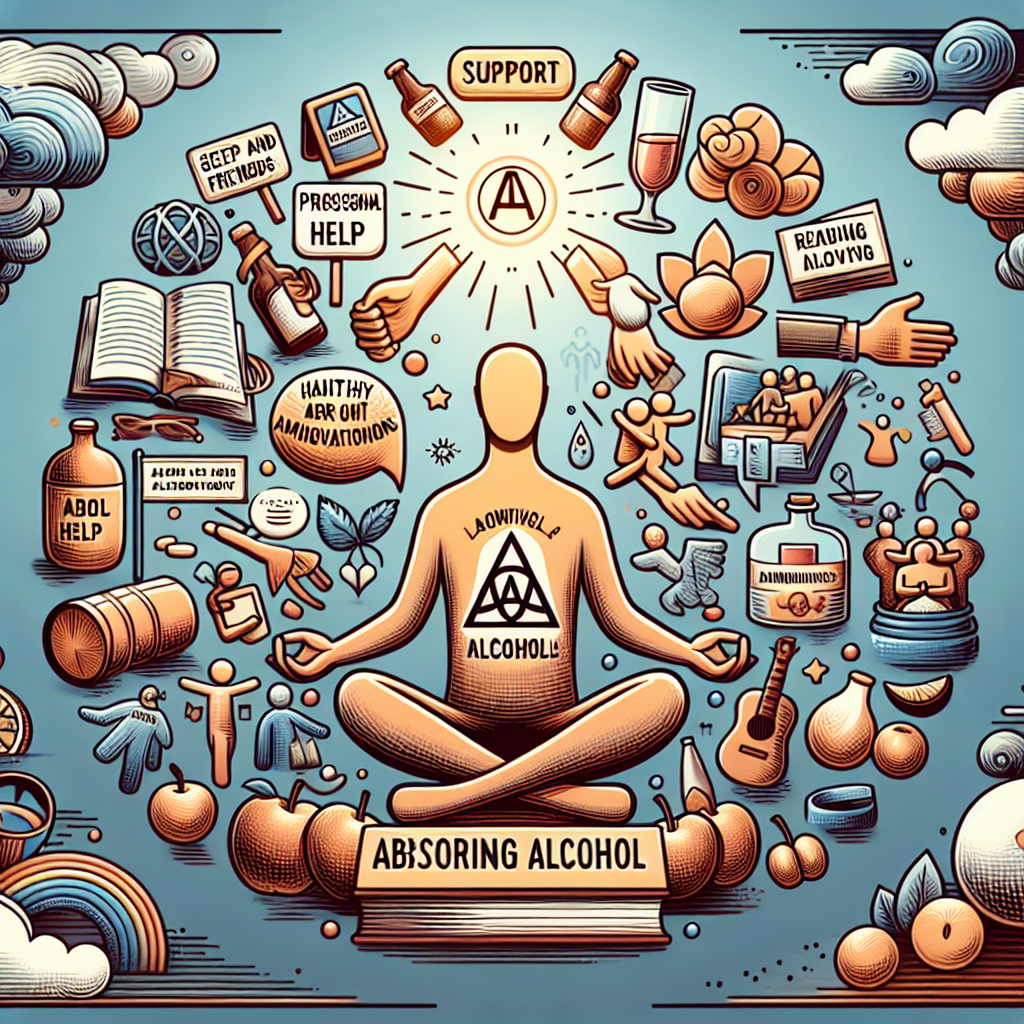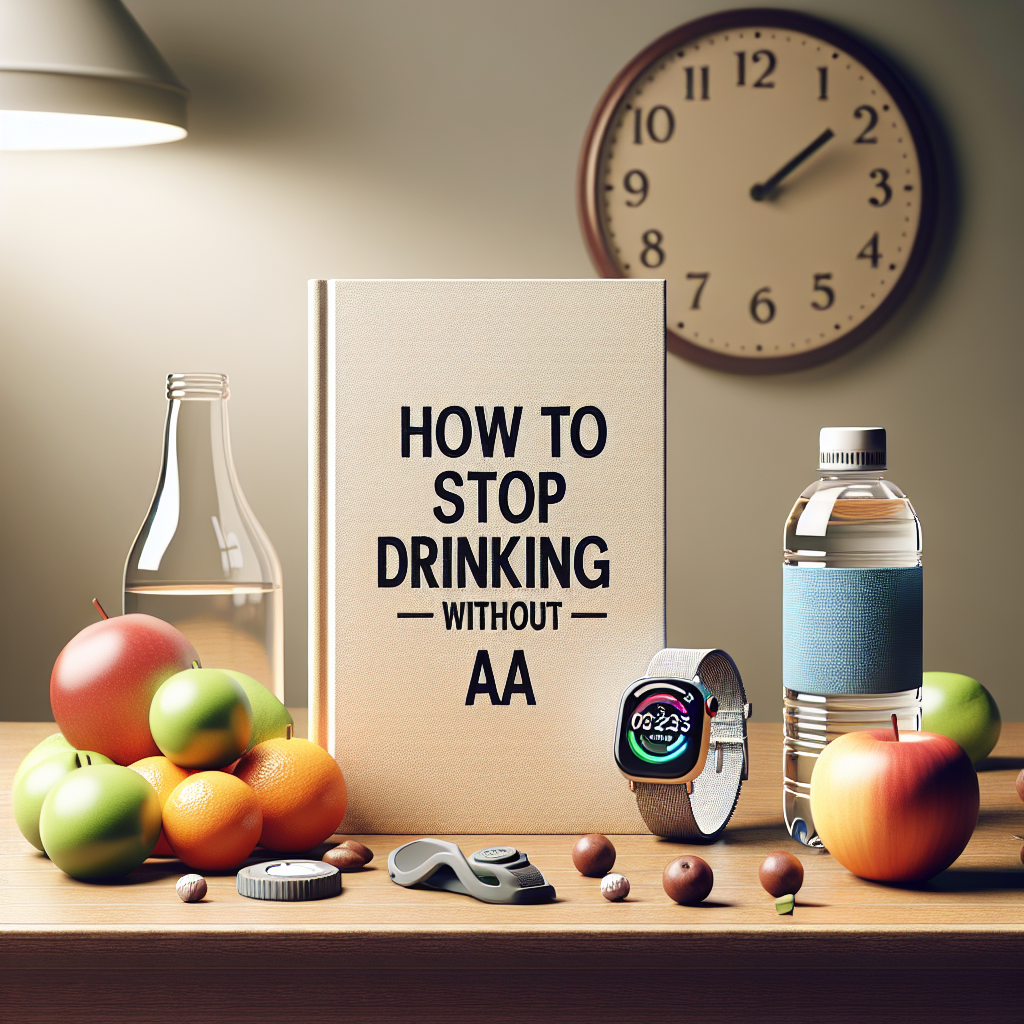-
Table of Contents

“Empower Your Sobriety: Break Free from Alcohol Without AA”
Introduction
Quitting alcohol can be a challenging journey, but it is entirely possible to achieve sobriety without the support of Alcoholics Anonymous (AA). Many individuals seek alternative methods that align more closely with their personal beliefs, lifestyles, or preferences. This guide explores various strategies and resources that can help you stop drinking without relying on AA. From understanding the root causes of your drinking habits to implementing practical steps and seeking professional help, this introduction provides a comprehensive overview of the tools and techniques available to support your path to a healthier, alcohol-free life.
Practical Steps to Quit Drinking Without AA
Quitting drinking is a significant and commendable decision that can lead to a healthier, more fulfilling life. While Alcoholics Anonymous (AA) is a well-known support system, it is not the only path to sobriety. Many individuals have successfully stopped drinking without attending AA meetings, and there are practical steps you can take to achieve this goal. The journey to sobriety is deeply personal, and finding the right approach for you is crucial.
First and foremost, it is essential to acknowledge the reasons behind your decision to quit drinking. Reflecting on the negative impacts alcohol has had on your life can provide a strong foundation for your commitment. Whether it’s health concerns, strained relationships, or a desire for personal growth, understanding your motivations can reinforce your resolve. Writing these reasons down and revisiting them regularly can serve as a powerful reminder of why you embarked on this journey.
Setting clear and achievable goals is another critical step. Instead of vague resolutions, define specific, measurable objectives. For instance, you might decide to reduce your alcohol intake gradually before quitting entirely. Breaking down your ultimate goal into smaller, manageable steps can make the process less overwhelming and more attainable. Celebrating each milestone, no matter how small, can boost your confidence and keep you motivated.
Building a strong support network is invaluable. While AA offers a structured support system, you can create your own network of friends, family, and professionals who understand and support your decision. Openly communicating your goals with trusted individuals can provide emotional support and accountability. Additionally, seeking the guidance of a therapist or counselor who specializes in addiction can offer professional insights and coping strategies tailored to your needs.
Identifying and avoiding triggers is crucial in maintaining sobriety. Triggers can be people, places, or situations that prompt the urge to drink. By recognizing these triggers, you can develop strategies to avoid or cope with them. For example, if social gatherings are a trigger, consider attending events where alcohol is not the focus or bringing a supportive friend along. Developing new, healthy habits and hobbies can also help fill the void left by alcohol and provide a sense of fulfillment.
Mindfulness and stress management techniques can play a significant role in your journey to sobriety. Practices such as meditation, yoga, and deep-breathing exercises can help you stay grounded and manage cravings. These techniques can also reduce stress, which is often a trigger for drinking. Incorporating regular physical activity into your routine can further enhance your mental and physical well-being, making it easier to resist the urge to drink.
Educating yourself about the effects of alcohol and the benefits of sobriety can reinforce your commitment. Reading books, articles, and personal stories about addiction and recovery can provide valuable insights and inspiration. Understanding the science behind addiction and the positive changes that occur in your body and mind when you stop drinking can strengthen your resolve.
Lastly, practicing self-compassion is essential. The journey to sobriety is rarely linear, and setbacks may occur. Instead of viewing these moments as failures, consider them opportunities to learn and grow. Being kind to yourself and recognizing your progress, no matter how gradual, can foster resilience and determination.
In conclusion, quitting drinking without AA is entirely possible with the right mindset and strategies. By understanding your motivations, setting clear goals, building a support network, identifying triggers, practicing mindfulness, educating yourself, and embracing self-compassion, you can successfully navigate the path to sobriety. Remember, every step you take towards a healthier, alcohol-free life is a victory worth celebrating.
Alternative Support Systems for Alcohol Recovery
Overcoming alcohol dependency is a challenging journey, but it is entirely possible to achieve sobriety without attending Alcoholics Anonymous (AA). While AA has helped countless individuals, it is not the only path to recovery. Alternative support systems can provide the necessary tools and encouragement to help you stop drinking and reclaim your life. By exploring these options, you can find a method that resonates with you and supports your unique needs.
One effective alternative to AA is seeking professional therapy. Cognitive-behavioral therapy (CBT) is particularly beneficial for those struggling with alcohol dependency. CBT helps individuals identify and change negative thought patterns and behaviors associated with drinking. By working with a trained therapist, you can develop coping strategies to manage triggers and stressors that may lead to alcohol use. Additionally, therapy provides a safe space to explore underlying emotional issues that may contribute to your drinking habits.
Another valuable resource is online support groups and forums. These platforms offer a sense of community and connection with others who are on a similar journey. Websites like SMART Recovery and Soberistas provide evidence-based tools and peer support to help you stay motivated and accountable. Engaging with an online community can be especially helpful if you prefer anonymity or have limited access to in-person meetings.
In addition to therapy and online support, lifestyle changes can play a crucial role in your recovery. Regular exercise, for instance, can significantly improve your physical and mental well-being. Exercise releases endorphins, which can help reduce cravings and improve your mood. Finding a physical activity you enjoy, whether it’s running, yoga, or dancing, can provide a healthy outlet for stress and anxiety.
Moreover, adopting a balanced diet can support your recovery process. Alcohol can deplete essential nutrients in your body, so focusing on a nutritious diet can help restore your health. Incorporating foods rich in vitamins and minerals, such as fruits, vegetables, lean proteins, and whole grains, can boost your energy levels and overall well-being. Staying hydrated and avoiding excessive caffeine and sugar can also help stabilize your mood and reduce cravings.
Mindfulness and meditation practices can further enhance your recovery journey. Techniques such as deep breathing, progressive muscle relaxation, and guided imagery can help you manage stress and stay present in the moment. Mindfulness meditation, in particular, can increase your awareness of thoughts and feelings related to drinking, allowing you to respond more thoughtfully rather than react impulsively.
Building a strong support network is also essential. Surrounding yourself with positive influences, whether they are friends, family, or mentors, can provide encouragement and accountability. Openly communicating your goals and challenges with trusted individuals can foster a sense of connection and reduce feelings of isolation. Additionally, consider seeking out sober social activities and events to build new, healthy relationships.
Lastly, setting realistic and achievable goals is crucial for long-term success. Breaking down your recovery journey into manageable steps can make the process feel less overwhelming. Celebrate your progress, no matter how small, and be kind to yourself if you experience setbacks. Remember that recovery is a continuous journey, and each day is an opportunity to make positive choices.
In conclusion, while AA is a well-known support system for alcohol recovery, it is not the only option available. By exploring professional therapy, online support groups, lifestyle changes, mindfulness practices, and building a strong support network, you can find alternative methods that work for you. Embrace the journey with patience and determination, knowing that a healthier, sober life is within your reach.
Q&A
1. **Question:** What are some alternative methods to stop drinking without attending AA meetings?
**Answer:** Some alternative methods include seeking therapy or counseling, using medication prescribed by a healthcare provider, engaging in self-help books and online resources, joining non-AA support groups, and practicing mindfulness and stress-reduction techniques.
2. **Question:** Can lifestyle changes help in stopping drinking without AA?
**Answer:** Yes, lifestyle changes such as adopting a healthy diet, regular exercise, building a strong support network, avoiding triggers, and finding new hobbies or activities can significantly help in stopping drinking without the need for AA.
Conclusion
To stop drinking without AA, one can adopt a multifaceted approach that includes setting clear personal goals, seeking support from friends and family, engaging in therapy or counseling, utilizing online resources and support groups, practicing mindfulness and stress management techniques, and making lifestyle changes to avoid triggers. It’s important to develop a strong support network and to be patient and persistent in the journey towards sobriety.



